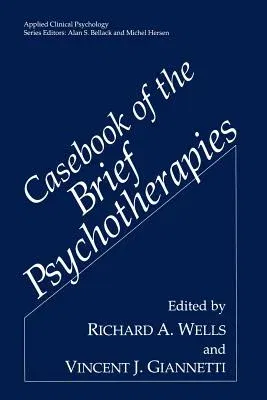Casebook of the Brief Psychotherapies (1993)Paperback - 1993, 30 September 1993

Qty
1
Turbo
Ships in 2 - 3 days
In Stock
Free Delivery
Cash on Delivery
15 Days
Free Returns
Secure Checkout
Part of Series
NATO Science Series B:
Part of Series
Applied Clinical Psychology
Part of Series
Language of Science
Part of Series
Finite Systems and Multiparticle Dynamics
Print Length
394 pages
Language
English
Publisher
Springer
Date Published
30 Sep 1993
ISBN-10
0306443937
ISBN-13
9780306443930
Description
Product Details
Book Edition:
1993
Book Format:
Paperback
Country of Origin:
US
Date Published:
30 September 1993
Dimensions:
22.71 x
15.24 x
3.07 cm
ISBN-10:
0306443937
ISBN-13:
9780306443930
Language:
English
Location:
New York, NY
Pages:
394
Publisher:
Series:
Weight:
589.67 gm

